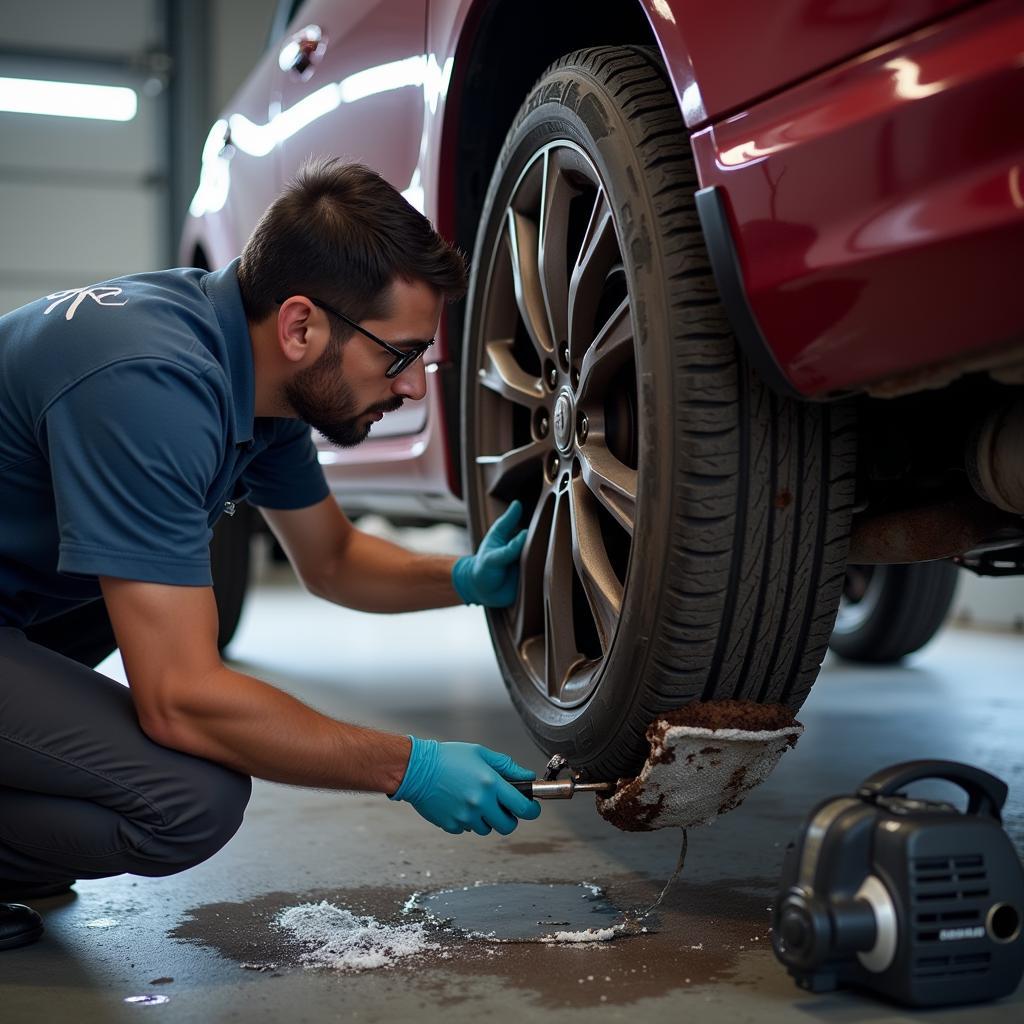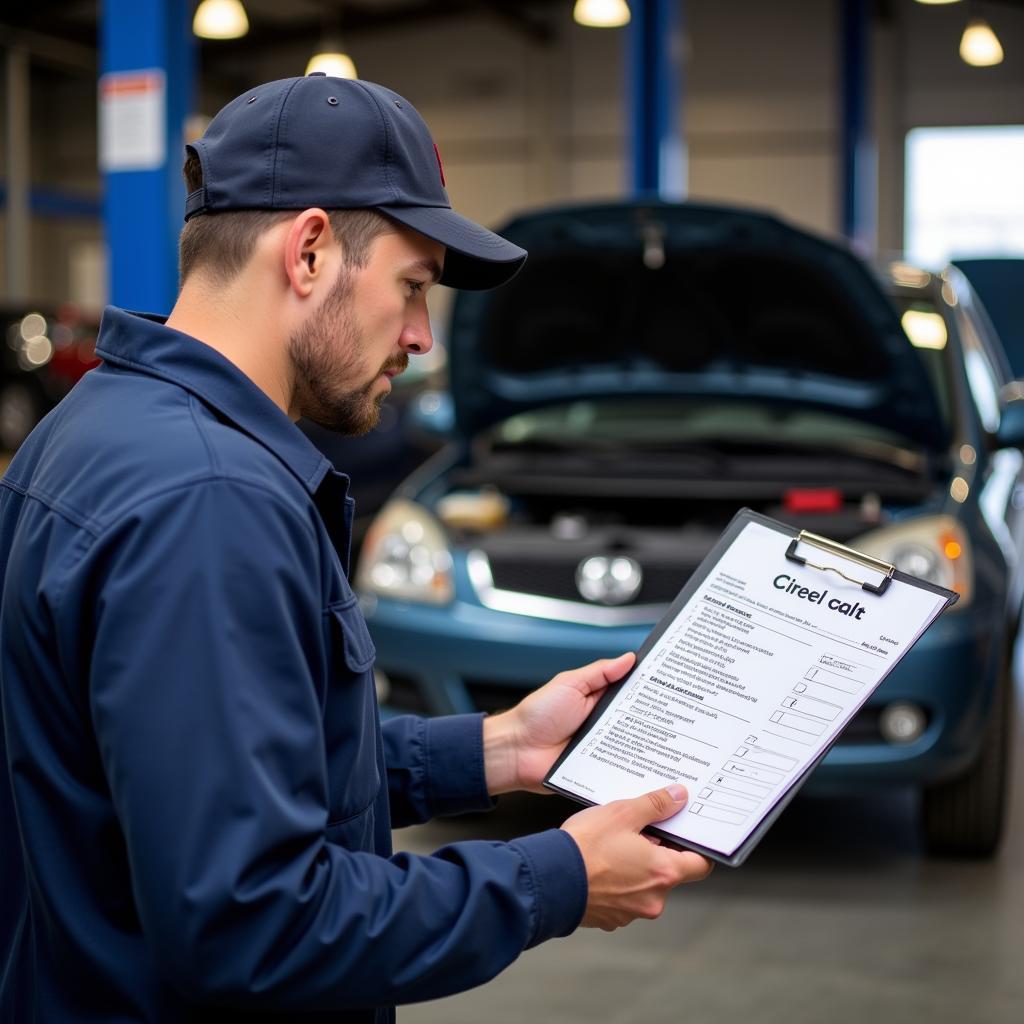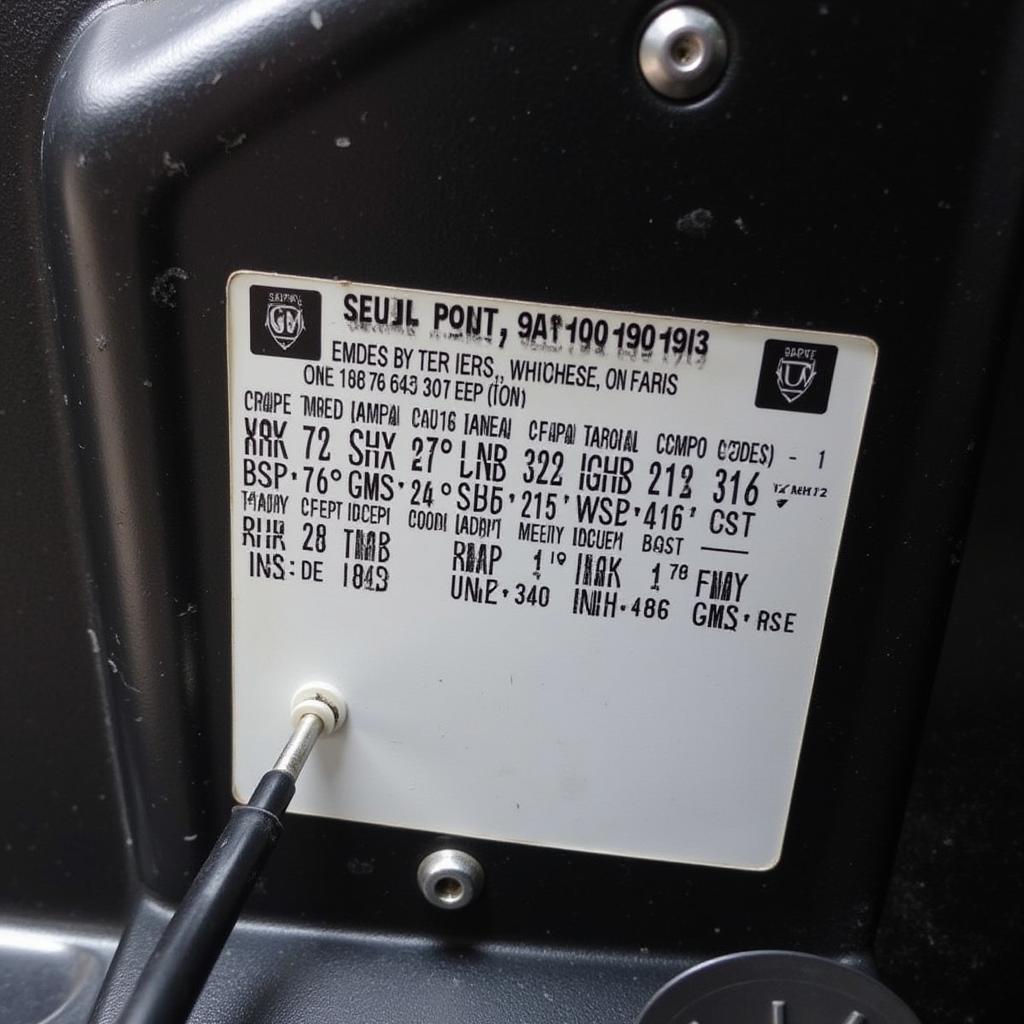Car Rust Protection Services: The Ultimate Guide to Keeping Your Vehicle Rust-Free
Rust is the bane of every car owner’s existence. It’s unsightly, can significantly decrease your vehicle’s value, and in extreme cases, can even compromise its structural integrity. But don’t worry, effective Car Rust Protection Services can shield your car from this insidious foe, keeping it looking its best and ensuring its longevity.
Understanding the Enemy: Why Car Rust Protection Matters
Before we delve into the specifics of car rust protection services, it’s crucial to understand why rust is such a problem for vehicles.
Rust, essentially iron oxide, forms when iron or an alloy that contains iron, like the steel in your car, is exposed to oxygen and moisture for a prolonged period. This chemical reaction, known as oxidation, eats away at the metal, causing it to weaken and deteriorate.
Several factors can accelerate the rusting process, including:
- Exposure to road salt: Commonly used in colder climates to melt ice, road salt is highly corrosive and can wreak havoc on your car’s undercarriage.
- Coastal environments: The salty air in coastal areas accelerates rust formation due to the increased presence of chloride ions.
- High humidity: Moisture in the air, especially in humid climates, provides the perfect breeding ground for rust.
- Scratches and chipped paint: Any damage to your car’s paint exposes the underlying metal to the elements, making it susceptible to rust.
Ignoring rust in its early stages can lead to costly repairs down the line. By investing in car rust protection services, you’re making a smart decision that protects your investment and saves you money in the long run.
Exploring Your Options: Types of Car Rust Protection Services
The market offers a variety of car rust protection services, each with its own set of pros and cons. Choosing the right one depends on your budget, your car’s age and condition, and your personal preferences.
Here’s a rundown of the most popular options:
1. Drip Oil Spray
This method involves spraying a rust-inhibiting oil onto the undercarriage of your car. The oil seeps into crevices and hard-to-reach areas, creating a protective barrier against moisture and salt.
Pros:
- Relatively inexpensive
- Provides decent protection against rust
- Relatively quick application process
Cons:
- Needs to be reapplied annually or bi-annually
- Can be messy
- May have a strong odor
2. Electronic Rust Protection
Electronic rust protection systems use a small electronic module to emit a weak electrical current. This current is said to disrupt the electrochemical reaction that causes rust.
Pros:
- No drilling or alteration to your car’s body required
- Typically comes with a long-term warranty
Cons:
- More expensive than drip oil sprays
- Its effectiveness is debated by some experts
3. Rustproofing Modules
These small modules are placed inside your car and release a vapor that coats the metal surfaces with a protective layer.
Pros:
- Easy to install
- Relatively inexpensive
Cons:
- Limited effectiveness compared to other methods
- May need frequent replacement
 Car Rust Protection Application
Car Rust Protection Application
4. Underbody Coatings
Underbody coatings, often referred to as “undercoating,” involve applying a thick, rubberized coating to your car’s undercarriage. This coating provides a durable barrier against rust, abrasion, and impact damage.
Pros:
- Offers excellent protection against rust and other forms of damage
- Long-lasting
Cons:
- More expensive than other methods
- Can be difficult to remove if needed
Making the Right Choice: Factors to Consider
Choosing the right car rust protection service can seem daunting, but by considering the following factors, you can make an informed decision:
- Your budget: Determine how much you’re willing to spend on rust protection.
- Your car’s age and condition: Newer cars might benefit more from preventative measures like drip oil sprays, while older vehicles might need the more robust protection of undercoating.
- Your location and climate: If you live in an area with harsh winters or near the coast, you’ll need a more heavy-duty rust protection solution.
Prolonging Protection: Tips for Maintaining Your Car’s Rust Protection
No matter which car rust protection service you choose, taking proactive steps to prevent rust will significantly extend its effectiveness.
Here’s what you can do:
- Wash your car regularly: Remove road salt, dirt, and debris that can accelerate rust formation.
- Wax your car twice a year: Wax creates a protective barrier over your car’s paint, shielding it from the elements.
- Inspect your car for rust regularly: Catching rust in its early stages makes it easier and less expensive to treat.
- Repair paint chips and scratches promptly: Exposed metal is a breeding ground for rust, so address any damage to your car’s paint as soon as possible.
Final Thoughts: Invest in Peace of Mind
“Car rust protection is an investment, not an expense,” says John Smith, Automotive Engineer at XYZ Auto Group. “By taking proactive steps to protect your car from rust, you’re ensuring its longevity and preserving its value for years to come.”
Ultimately, the best car rust protection is the one that fits your budget, your vehicle, and your lifestyle. By understanding your options and taking proactive steps to prevent rust, you can keep your car looking its best and maintain its value for years to come.
FAQs about Car Rust Protection Services
1. How often should I get my car rust proofed?
The frequency of rust proofing depends on the type of service you choose and your car’s usage. Generally, drip oil sprays need reapplication annually or bi-annually, while undercoating can last for several years.
2. Can I rust proof my car myself?
While DIY rustproofing kits are available, it’s generally recommended to have it done professionally. Professionals have the experience, equipment, and knowledge to apply the product evenly and effectively, ensuring optimal protection.
3. Is car rust protection covered by insurance?
Typically, car rust protection is not covered by standard auto insurance policies. However, some insurance providers may offer additional coverage options for rustproofing. It’s always best to check with your insurance company for specific details.
4. What type of car rust protection is best for older cars?
For older cars, especially those already showing signs of rust, undercoating is often the most effective solution. It provides a durable barrier against further rust development and can help prolong the life of your vehicle.
5. How can I prevent rust from spreading on my car?
If you notice any rust on your car, it’s crucial to address it immediately to prevent it from spreading. This typically involves sanding down the affected area, applying a rust converter, and repainting the surface.
Need help with Car Rust Protection?
Contact us via WhatsApp: +1(641)206-8880, or email us at [email protected]. We are available 24/7 to assist you!

